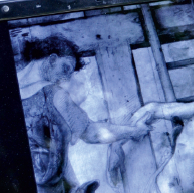
Doutoramento em Química (com atribuição do Título de Doutoramento Europeu)
Studies on the Catalytic Intramolecular Arylation – Application of Continuous Flow Systems
Hugo Ricardo Matos Viana
Orientação: Anthony Burke e Kerry Gilmore
Currently, neurodegenerative diseases like Alzheimer’s (AD) and Parkinson’s disease (PD) represent an important worldwide health problem.
Over the last number of years, there have been many advances in the field of metal catalysed reactions. The palladium-catalysed intramolecular nucleophilic addition of arylborons and aryl halides to ketones constitutes an important methodology for the synthesis of chiral cycloalkanols.
Our main objective was the development of a new efficient protocol for accessing the 1-aminotetralin and 1-aminoindane skeletons (Chapters 3 and 4). A secondary goal was to obtain robust and reliable enantioselective versions of these reactions (Chapters 3 and 4). Numerous aldehyde substrates were synthesized and various cyclization reactions were carried out using these substrates (Chapter 3). We also compared the effectiveness of conducting these reactions under continuous flow conditions, with those carried out under batch conditions. Furthermore, some of our 3,3-dimethylchroman-4-ones and 3,3-dimethylchroman-4-ols were tested against AChE and BuChE enzymes. Chapters 1 and 2 contain literature reviews of this material.
We also report the attempted synthesis of a library of substituted 3-hydroxy-3-phenylbenzofuran-2(3H)-ones derived from a series of α-keto o-bromoaryl- and o-pinacolboranearyl ester substrates (Chapter 4). For the synthesis of the α-keto ester substrates, we looked at two different methodologies. Eight α-keto ester substrates were synthesized in very high or excellent yields. We also studied the cyclization reaction with 1-bromonaphthalen-2-yl 2-oxo-2-phenylacetate as our model substrate. Unfortunately, these attempts were unsuccessful and no cyclic product was obtained.
Additionally, we successfully developed a new methodology for the direct oxidative esterification of aldehydes (Chapter 5). Using this methodology, we synthesized nine new diether-esters in very good to excellent yields, which were subsequently tested for both AChE and BuChE inhibition. We also presented a strategy for the synthesis of interesting polyether macrocycles that includes the borylation of the synthesized diether-esters and a Suzuki-Miyaura coupling.




